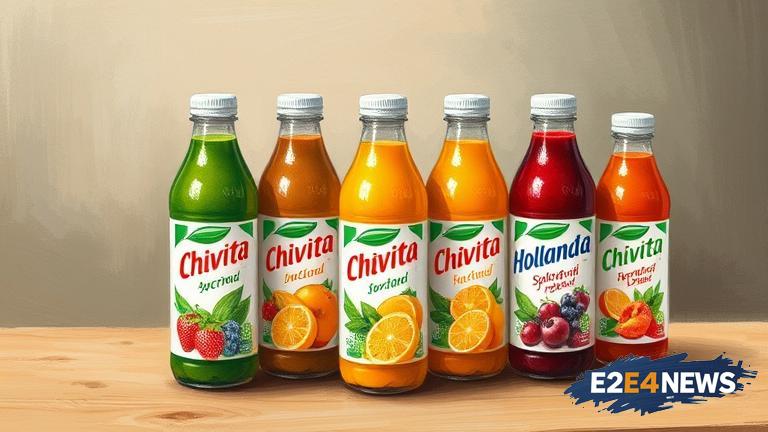In a move that is set to send shockwaves through the Nigerian beverage industry, Coca-Cola has announced its decision to sell its Chivita and Hollandia brands to UAC. This development marks a significant exit for the global beverage giant from the Nigerian juice market. The sale is expected to be completed in the coming months, subject to regulatory approvals. The Chivita and Hollandia brands have been a staple in Nigerian households for decades, with a wide range of products that cater to different tastes and preferences. The brands have been owned by Coca-Cola since 2012, when the company acquired a 40% stake in Chi Limited, the manufacturer of the brands. However, despite its best efforts, Coca-Cola has struggled to make a significant impact in the Nigerian juice market, which is dominated by local players. The sale of the Chivita and Hollandia brands is seen as a strategic move by Coca-Cola to focus on its core brands, such as Coca-Cola, Fanta, and Sprite. UAC, on the other hand, is a leading Nigerian conglomerate with a diverse portfolio of businesses, including food, beverages, and real estate. The company has a strong track record of acquiring and turning around underperforming businesses, and is expected to inject new life into the Chivita and Hollandia brands. The acquisition is also expected to create new opportunities for UAC to expand its presence in the Nigerian beverage market. The Nigerian juice market is highly competitive, with a number of local players vying for market share. However, the market is also highly fragmented, with a number of small and medium-sized enterprises operating in the space. The sale of the Chivita and Hollandia brands is expected to have a significant impact on the market, as UAC is likely to invest heavily in marketing and distribution to increase the brands’ visibility and reach. The acquisition is also expected to create new jobs and stimulate economic growth in Nigeria. The Nigerian government has welcomed the acquisition, saying that it is a vote of confidence in the country’s economy. The government has also pledged to support UAC in its efforts to turn around the Chivita and Hollandia brands. The sale of the Chivita and Hollandia brands is a significant development in the Nigerian beverage industry, and is likely to have far-reaching implications for the market. As the market continues to evolve, it will be interesting to see how UAC navigates the challenges and opportunities that come with owning the Chivita and Hollandia brands. The company will need to invest heavily in marketing and distribution to increase the brands’ visibility and reach, and will also need to navigate the complex regulatory environment in Nigeria. However, with its strong track record of acquiring and turning around underperforming businesses, UAC is well-placed to succeed in the Nigerian beverage market. The acquisition is also expected to have a positive impact on the Nigerian economy, as it is likely to create new jobs and stimulate economic growth. In conclusion, the sale of the Chivita and Hollandia brands to UAC is a significant development in the Nigerian beverage industry, and is likely to have far-reaching implications for the market. As the market continues to evolve, it will be interesting to see how UAC navigates the challenges and opportunities that come with owning the Chivita and Hollandia brands.
